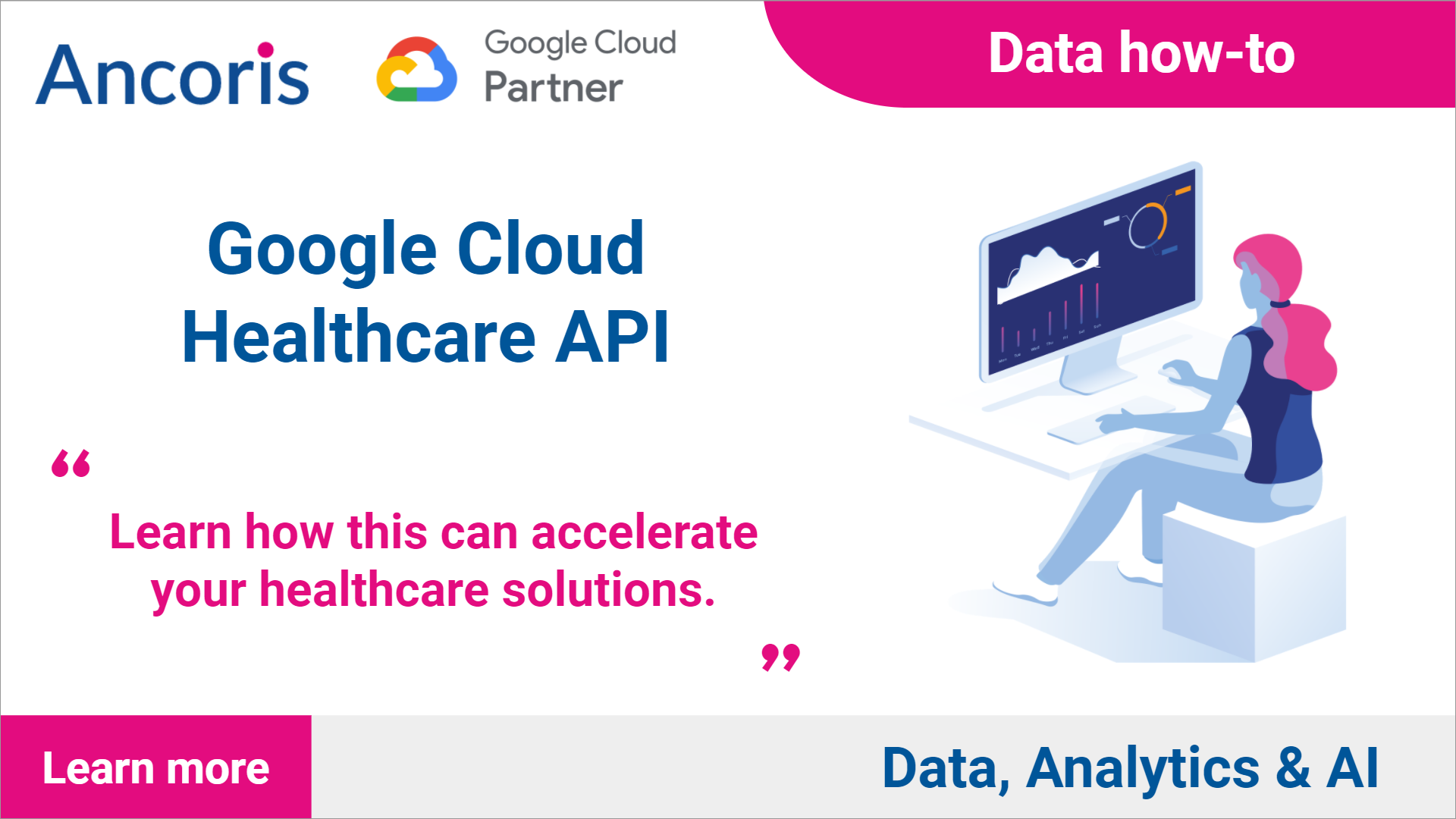Nowhere is data security, accuracy and time-to-insight more critical than in the world of healthcare. Rapid deployment of AI is enabling healthcare specialists to provide a better service and Google’s Cloud Healthcare API is the catalyst to unlocking GCP for this high-value use case.
The challenge
Taking FHIR data as an example. FHIR (Fast Healthcare Interoperability Resources) is a global standard designed to enable the exchange of healthcare-related information. The data structure is deeply nested; trying to model this relationally ends up with hundreds of tables and thousands of foreign keys.
Meanwhile DICOM (Digital Imaging and Communications in Medicine) is a standard format for medical images, including x-ray, MRI and CT scans, and contains invaluable diagnostic information and potential prognosis insights.
In this paper, Steve G. Langer summarises these challenges:
Researchers in medical imaging face a multitude of challenges:
- acquiring data sets, sometimes in DICOM format but often in other “raw” formats
- storing the data (and perhaps anonymizing or encrypting it)
- possibly sharing data while still protecting patient privacy
- indexing the relationships between standard files (i.e., DICOM) and their proprietary ancestral raw files
- and maintaining data viability
Connecting healthcare data to the cloud
The solution is Cloud Healthcare API.
Cloud Healthcare API is a packaged solution to accelerate ingestion, storage and analysis of healthcare data by cloud-based applications and services. Currently supported are HL7v2, DICOM and FHIR, all of which are widely-used formats for healthcare records and data.
Acting as the conduit between the on-premises source systems and Google Cloud Platform, Healthcare API allows you to leverage GCP to its fullest. With fully managed services and tools such as Dataflow, BigQuery, and AutoML it is significantly faster (and easier) to utilise machine learning on healthcare data.
Google's AutoML (zero-code machine learning) is particularly useful here; a typical problem in healthcare is the size and quality of data available for training. Since AutoML uses a transfer learning technique, quality models can be achieved even with small data sets.
Healthcare API has another great feature for combatting this issue - the ability to easily de-identify data. This is desirable for creating larger data sets for use in ML. Simply use the Deidentify method in an API call, and the redacted data is created. Alternatively this can also be done through the UI under the Actions dropdown.
Behind the scenes
Healthcare data is organised in datasets and stores, where each store is bound to a healthcare data type (i.e DICOM, HL7v2, FHIR). Healthcare data can then be streamed into the stores using simple API calls.
An example of just how simple this is, is shown below.
Every type of store (e.g. DICOM) in healthcare API can be associated with a pub/sub topic. By doing this, every time new data enters a store it can trigger a message to a given topic. Typically, the message will contain the path of the resource which changed and from this we can perform some action. This depends on the use case, but may include running the data against an ML model or updating analytics.
Using the API we can export data from a store in its native type (e.g. DICOM) and project it directly to BigQuery - extremely useful for SQL based analysis (especially BigQuery ML).
Equivalently with the API, it is easy to export the data directly to cloud storage.
Conclusions
Google’s Healthcare API is a highly effective service for ingesting and storing medical data, enabling further analysis in Google Cloud. A fully managed service, Healthcare API is scalable, secure, and compliant with strict regulations in this industry. The API is fully backed by Google’s security and privacy practises, compliant with HIPAA, PIPEDA, and other global privacy standards. More details can be found here.
Google has made the API really simple to use, and has successfully managed to abstract away the majority of the complexities that a user would typically encounter when working with healthcare data.
The data formats supported by the Healthcare API are widely used in both human and veterinary care, opening up the potential for use in animal healthcare.
Next steps
1. See the Healthcare API in action, in this session from Cloud Next ‘19
2. Read the Google Cloud Healthcare API documentation
3. Learn more about Ancoris Data, Analytics & AI
